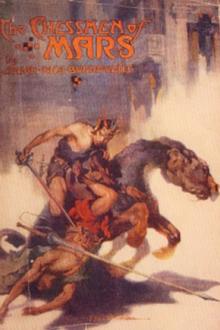Genre Fiction. Page - 280

in the sun. What harm can a naked frog do us? Let him run with the Pack. Where is the bull, Bagheera? Let him be accepted." And then came Akela's deep bay, crying: "Look well--look well, O Wolves!"
Mowgli was still deeply interested in the pebbles, and he did not notice when the wolves came and looked at him one by one. At last they all went down the hill for the dead bull, and only Akela, Bagheera, Baloo, and Mowgli's own wolves were left. Shere Khan roared still in the night, for he was very angry that Mowgli had not been handed over to him.
"Ay, roar well," said Bagheera, under his whiskers, "for the time will come when this naked thing will make thee roar to another tune, or I know nothing of man."
"It was well done," said Akela. "Men and their cubs are very wise. He may be a help in time."
"Truly, a help in time of need; for none can hope to lead the Pack forever," said Bagheera.
Akela said nothing. He was thinking of the time that comes to every leader of every pack w

"Is he really an anarchist, then?" she asked.
"Only in that sense I speak of," replied Syme; "or if you prefer it, in that nonsense."
She drew her broad brows together and said abruptly--
"He wouldn't really use--bombs or that sort of thing?"
Syme broke into a great laugh, that seemed too large for his slight and somewhat dandified figure.
"Good Lord, no!" he said, "that has to be done anonymously."
And at that the corners of her own mouth broke into a smile, and she thought with a simultaneous pleasure of Gregory's absurdity and of his safety.
Syme strolled with her to a seat in the corner of the garden, and continued to pour out his opinions. For he was a sincere man, and in spite of his superficial airs and graces, at root a humble one. And it is always the humble man who talks too much; the proud man watches himself too closely. He defended respectability with violence and exaggeration. He grew passionate in his praise of tidiness and propriety. All

er than beautiful, perhaps. Her face was lesschildish than when she had gone away; there was, in certain of herexpressions, an almost alarming maturity. But perhaps that wasfatigue.
"I couldn't have had Castle, mother. I didn't need anything. I'vebeen very happy, really, and very busy."
"You have been very vague lately about your work."
Lily faced her mother squarely.
"I didn't think you'd much like having me do it, and I thought itwould drive grandfather crazy."
"I thought you were in a canteen."
"Not lately. I've been looking after girls who had followed soldiersto camps. Some of them were going to have babies, too. It wasrather awful. We married quite a lot of them, however."
The curious reserve that so often exists between mother and daughterheld Grace Cardew dumb. She nodded, but her eyes had slightlyhardened. So this was what war had done to her. She had had no son,and had thanked God for it during the war, although old Anthony hadhated her all her married life

nstantly. A single grain of gimlet-dust, for example, would have been as obvious as an apple. Any disorder in the gluing, any unusual gaping in the joints, would have sufficed to insure detection."
"I presume you looked to the mirrors, between the boards and the plates, and you probed the beds and the bedclothes, as well as the curtains and carpets."
"That of course; and when we had absolutely completed every particle of the furniture in this way, then we examined the house itself. We divided its entire surface into compartments, which we numbered, so that none might be missed; then we scrutinized each individual square inch throughout the premises, including the two houses immediately adjoining, with the microscope, as before."
"The two houses adjoining!" I exclaimed; "you must have had a great deal of trouble."
"We had; but the reward offered is prodigious."
"You include the grounds about the houses?"
"All the grounds are paved with brick. They gave us comparatively

glory undefiled,
When Nandi(455) stands beside his lord,
And King Himálaya's child.(456)
Canto XVII. Súrpanakhá.
The bathing and the prayer were o'er;
He turned him from the grassy shore,
And with his brother and his spouse
Sought his fair home beneath the boughs.
Sítá and Lakshman by his side,
On to his cot the hero hied,
And after rites at morning due
Within the leafy shade withdrew.
Then, honoured by the devotees,
As royal Ráma sat at ease,
With Sítá near him, o'er his head
A canopy of green boughs spread,
He shone as shines the Lord of Night
By Chitrá's(457) side, his dear delight.

ed him in a remote sort of way. Not that the idea of telepathy itself was alien to him--after all, he was even more aware than the average citizen that research had been going on in that field for something over a quarter of a century, and that the research was even speeding up.
But the cold fact that a telepathy-detecting device had been invented somehow shocked his sense of propriety, and his notions of privacy. It wasn't decent, that was all.
There ought to be something sacred, he told himself angrily.
He stopped walking and looked up. He was on Pennsylvania Avenue, heading toward the White House.
That was no good. He went to the corner and turned off, down the block. He had, he told himself, nothing at all to see the President about.
Not yet, anyhow.
The streets were dark and very peaceful. I get my best ideas while walking, Malone said without convincing himself. He thought back to the video tapes.
The report on the original use of the machine its

l perfection--the effortlessharmony of faultless coordination. A scarf of silken gossamercrossing over one shoulder was wrapped about her body; her blackhair was piled high upon her head. With a wooden stick she tappedupon the bronze disc, lightly, and presently the summons wasanswered by a slave girl, who entered, smiling, to be greetedsimilarly by her mistress.
"Are my father's guests arriving?" asked the princess.
"Yes, Tara of Helium, they come," replied the slave. "I have seenKantos Kan, Overlord of the Navy, and Prince Soran of Ptarth, andDjor Kantos, son of Kantos Kan," she shot a roguish glance at hermistress as she mentioned Djor Kantos' name, "and--oh, there wereothers, many have come."
"The bath, then, Uthia," said her mistress. "And why, Uthia," sheadded, "do you look thus and smile when you mention the name ofDjor Kantos?"
The slave girl laughed gaily. "It is so plain to all that heworships you," she replied.
"It is not plain to me," said Tara of Helium. "He is the fri

COUNTESS.
Be thou blest, Bertram, and succeed thy father
In manners, as in shape! thy blood and virtue
Contend for empire in thee, and thy goodness
Share with thy birthright! Love all, trust a few,
Do wrong to none: be able for thine enemy
Rather in power than use; and keep thy friend
Under thy own life's key: be check'd for silence,
But never tax'd for speech. What heaven more will,
That thee may furnish and my prayers pluck down,
Fall on thy head! Farewell.--My lord,
'Tis an unseason'd courtier; good my lord,
Advise him.
LAFEU.
He cannot want the best
That shall attend his love.
COUNTESS.
Heaven bless him!--Farewell, Bertram.
[Exit COUNTESS.]
BERTRAM.
The best wishes that can be forg'd in your thoughts [To HELENA.] be servants to you! Be comfortable to my mother, your mistress, and make much of her.
LAFEU.
Farewell, pretty

actice in ourneighborhood."
"I know you did, sir," I replied. "But what was a poor travelingportrait-painter like my husband, who lives by taking likenessesfirst in one place and then in another, to do? Our bread dependedon his using his eyes, at the very time when you warned him tolet them have a rest."
"Have you no other resources? No money but the money Mr. Kerbycan get by portrait-painting?" asked the doctor.
"None," I answered, with a sinking at my heart as I thought ofhis bill for medical attendance.
"Will you pardon me?" he said, coloring and looking a littleuneasy, "or, rather, will you ascribe it to the friendly interestI feel in you, if I ask whether Mr. Kerby realizes a comfortableincome by the practice of his profession? Don't," he went onanxiously, before I could reply--"pray don't think I make thisinquiry from a motive of impertinent curiosity!"
I felt quite satisfied that he could have no improper motive forasking the question, and so answered it at once plainly and

"That he desired to conceal his handwriting."
"But why? What can it matter to him that his landlady shouldhave a word of his writing? Still, it may be as you say. Then,again, why such laconic messages?"
"I cannot imagine."
"It opens a pleasing field for intelligent speculation. The wordsare written with a broad-pointed, violet-tinted pencil of a notunusual pattern. You will observe that the paper is torn away atthe side here after the printing was done, so that the 's' of'soap' is partly gone. Suggestive, Watson, is it not?"
"Of caution?"
"Exactly. There was evidently some mark, some thumbprint,something which might give a clue to the person's identity. Now.Mrs. Warren, you say that the man was of middle size, dark, andbearded. What age would he be?"
"Youngish, sir--not over thirty."
"Well, can you give me no further indications?"
"He spoke good English, sir, and yet I thought he was a foreignerby his accent."
"And he was well dressed?"
"Very smartly dressed,